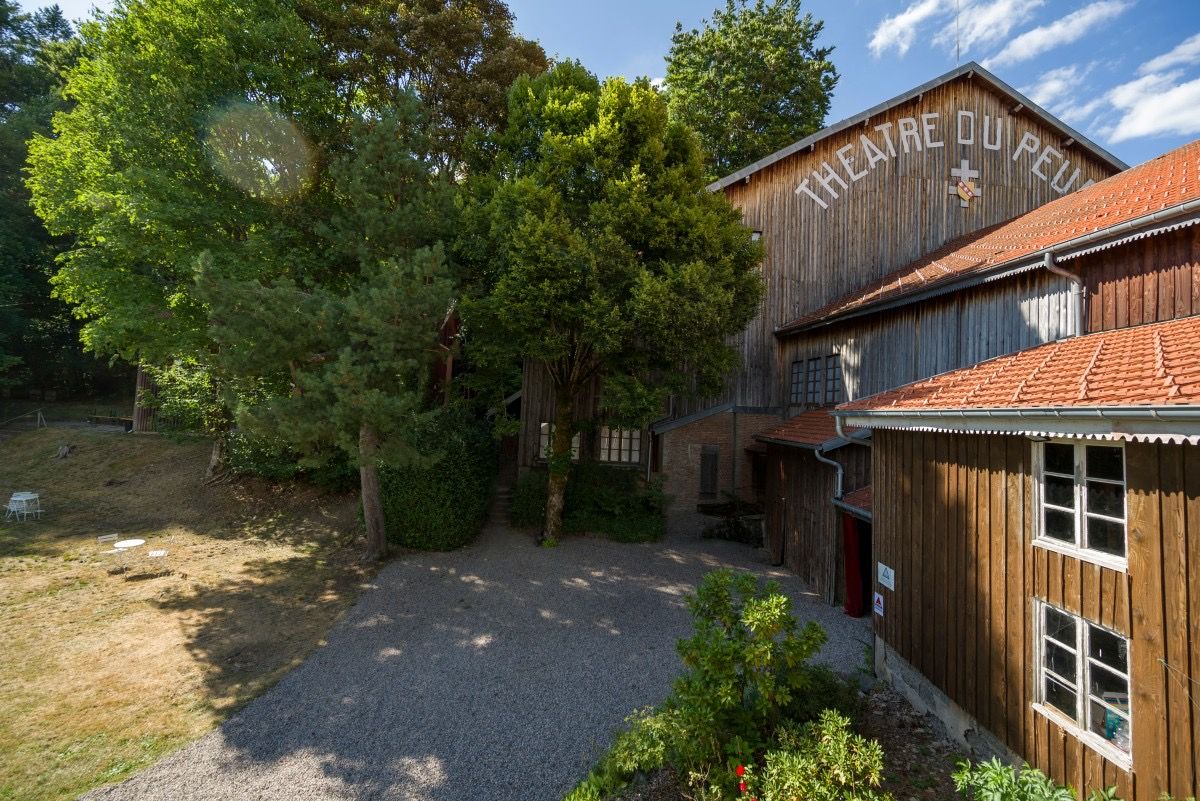
Each summer, hundreds of theatergoers gather in the heart of the Vosges forest at the iconic Théâtre du Peuple in Bussang. This year’s program features bold, poetic productions that blur the lines between nature, fairy tales, and political satire.
An enchanting summer break surrounded by greenery and mountain views: each day, crowds flock to the Théâtre du Peuple in Bussang, a symbol of cultural decentralization, which this season is staging The Naked King by Evgeny Schwartz.
By early afternoon this August Saturday, the streets of the small 1,000-person village are buzzing—cars streaming toward the theater.
Well organized and one of a kind, the all-wooden venue reopens each summer, welcoming up to 850 spectators per performance.
Armed with colorful pillows and cushions, the audience settles in on the famously uncomfortable wooden benches.
At 3 p.m., the play directed by Sylvain Maurice begins, revealing the theater’s trademark backdrop: the Vosges forest itself.
Forest
Over the course of three hours, The Naked King tells the love story of Henri, a pig herder, and Henriette, a princess promised to a tyrannical king.
The play, written in 1934 in the Soviet Union, was never performed during Schwartz’s lifetime. It weaves together three Hans Christian Andersen tales—The Princess and the Swineherd, The Princess and the Pea, and The Emperor’s New Clothes.
Led by Manuel Le Lièvre in the role of the king, the mixed troupe of professionals and amateurs delivers three hours of laughter and subtle political critique.
Maurice describes the play as a chance to show “how ridiculous and arrogant the powerful can be” through theater. For him, the stage itself is “the main character in this project.”
Evening shows are also packed. Some spectators are turned away disappointed, as the play sells out every weekend.
Julie Delille, artistic director since October 2023, also presents I Am the Beast every Thursday, Friday, and Saturday at 8 p.m. The production, created with her company Théâtre des Trois Parques (founded in 2015), is adapted specifically for this space where the story deeply resonates.
Based on the novel by Anne Sibran, the play follows Méline, a child abandoned in the woods and raised by a cat who teaches her how to survive in the forest.
Darkness
Like Méline hiding in her closet, the audience is plunged into darkness for a powerful one-hour performance.
In the dimly lit hall, only the white-etched Cross of Lorraine above the stage remains visible. The audience glimpses “the beast,” played by Delille, only in flashes as she performs solo.
“It feels like the play was written for this exact place,” says one spectator afterward.
“I hear that a lot,” Delille replies. The experience was reimagined to fully embrace the unique venue, especially as night falls.
“It really unsettled us,” says another. “You lose all sense of direction,” adds someone else, huddled around a campfire under the stars during a post-show discussion with Delille.
This year’s theme, “Let’s rejoice!”, reflects the theater’s desire to reconnect with the people of Bussang and surrounding areas as it celebrates 130 years since Maurice Pottecher founded this “utopia” in 1895 in his hometown.
A writer, director, and actor, Pottecher turned the Théâtre du Peuple into a cornerstone of cultural outreach and inclusivity.
The unique history of this extraordinary venue will be told in a “theatrical serial” from August 20–30 in Bussang.
By Marine Ledoux / AFP



Comments